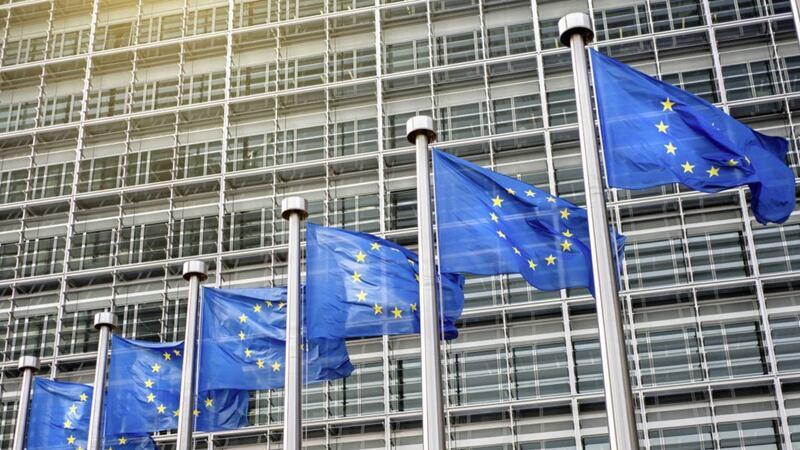If no one has already said it, someone should point out that inconsistency is the hallmark of Irish politics.
The suggestion arises from observing that while Irish politicians argue for using scientific evidence as the only way to tackle the coronavirus, the basis for their other policies range from limited debate to blind belief.
For example, evidence-based health policy starkly contrasts with the blind faith which shapes Ireland's attitude to the EU and the process of Brexit.
We willingly debate many social, economic and political issues, ranging from same sex marriage to Irish unity. But although Brexit will define Ireland's future, north and south, there has been no debate on it or on Ireland's EU membership.
The EU has replaced religious belief as our source of moral authority, which allows neither difference nor dissent. Welcome to Ireland's faith-based devotion to Brussels.
So where, you ask, is the evidence that Brussels and Berlin might not be good for us?
Much of it has been presented in this column, since long before Brexit was even considered. It has been largely ignored, which is an understandable reaction to a lone voice.
But now a much more authoritative voice has echoed that same evidence, in significantly more detail and depth. Ray Bassett is an Irish civil servant, who helped to shape the Good Friday Agreement (GFA) as part of the Dublin government's talks team and who later became Ireland's ambassador to Canada.
In his recently published book, Ireland and the EU Post Brexit, he makes a substantial case against Irish membership of the EU and argues that Ireland's handling of Brexit has not been in the national interest. While this column's views have been based on observation from the outside, Bassett's are more valuable, because they are based on inside experience. They make riveting reading.
He offers several arguments against the EU: its role in syphoning €64 billion from the Irish people during the banking crisis (now largely ignored by the Irish media); the EU's undemocratic nature ("Elections cannot be allowed to change economic policy", as German Finance Minister Schåuble told the Greek government) and the EU's aim of creating a single federal state with its own army, contrary to Irish sovereignty and neutrality. (Britain was the main opponent of an EU army. Who will oppose it now?)
But he offers much more: in a week which marked the death of John Hume, he makes the startling claim that throughout much of the Brexit negotiations, the Irish government was prepared to abandon its responsibilities under the Good Friday Agreement to appease Brussels. He is particularly critical of anti-British speeches by Leo Varadkar and Simon Coveney, which were "needlessly provocative." during the EU-UK Brexit negotiations.
Support for the EU is now a core principle of Irish nationalism, presumably in the belief that our enemy's enemy must be our friend. In reading some original documents from the civil rights movement recently (as you do during lockdown) I discovered a petition signed by several hundred Long Kesh internees demanding that Ireland should not join the then EEC. Tomorrow is the 49th anniversary of the introduction of internment. The nationalist north will remember the anniversary, but who now will support the petition?
The British press recently gloated that Ireland will pay €19 billion into the EU's coronavirus bailout, while receiving only €2 billion back in grants. (It already pays the EU £1 billion more than it receives annually and this will rise to €3 billion next year.) Irish media coverage was less revealing, thereby supporting Bassett's point that the Dublin-based media has not provided balanced coverage of Irish EU membership.
All of which offers ample evidence to indicate the need for a reasoned debate on Ireland's post-Brexit future. It will be difficult to conduct, because as Jonathan Swift suggested, it is useless to attempt to reason people out of something they were never reasoned into. But we might start by applying the same rules of evidence to EU membership as we do to tackling the coronavirus.









